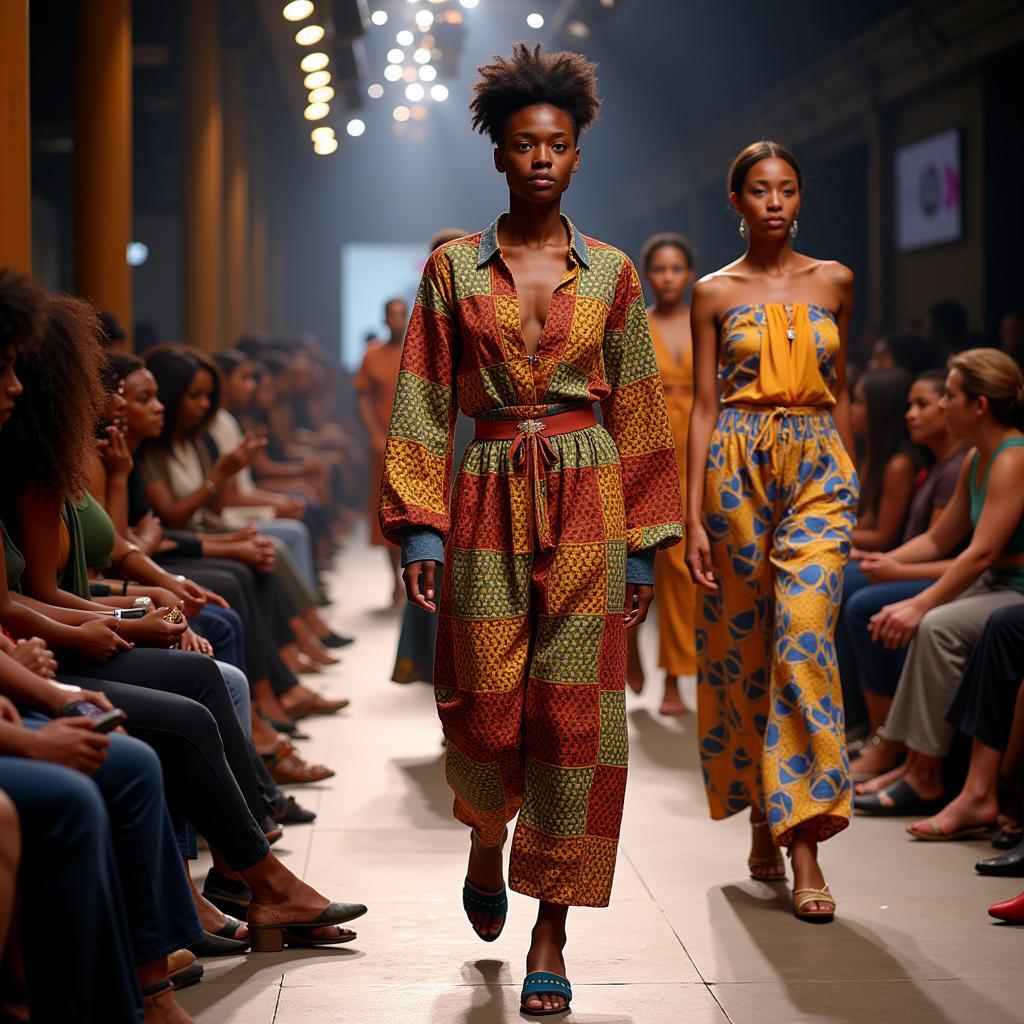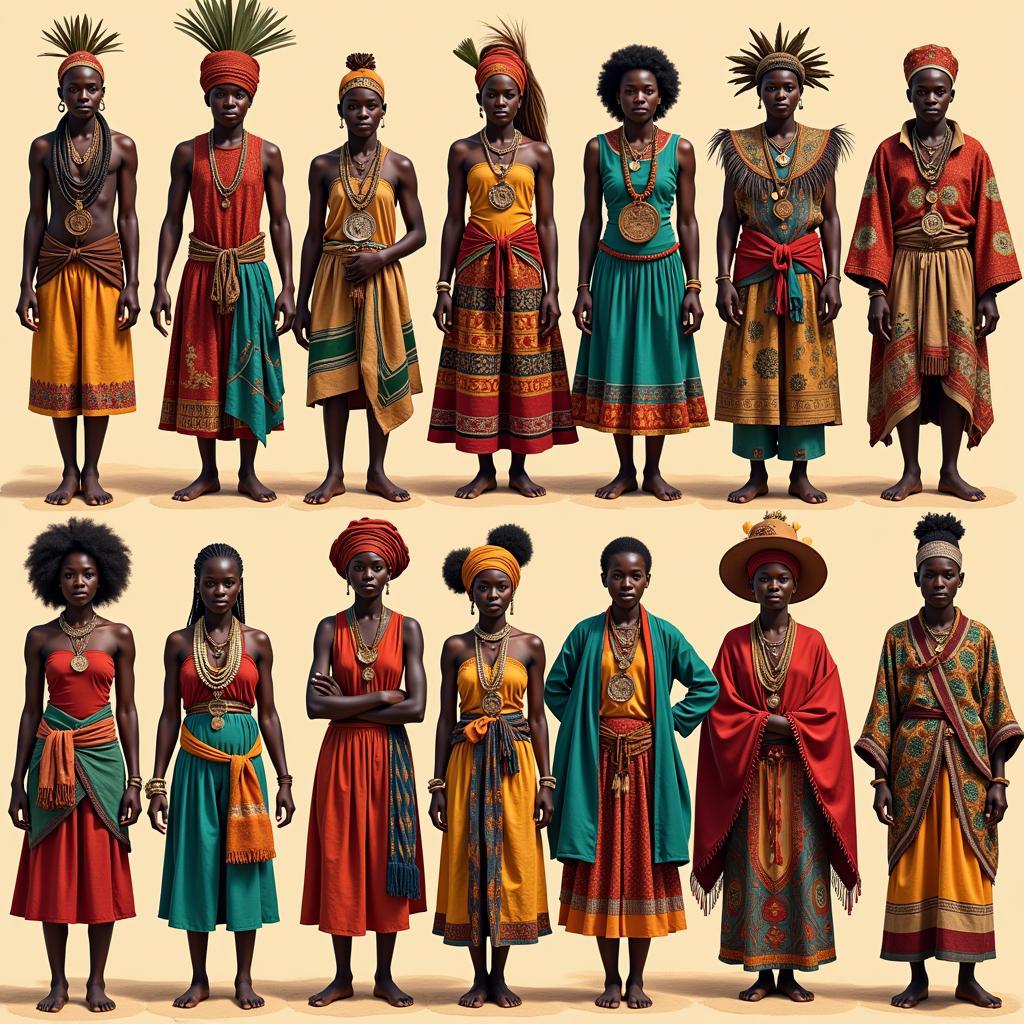Exploring the Rich Tapestry of African Literature in English
African Literature In English is a vibrant and diverse landscape that reflects the continent’s rich history, culture, and experiences. It encompasses a wide range of genres, styles, and themes, offering a profound understanding of the African identity and its complexities. From the early colonial era to the contemporary period, African writers have used the English language to articulate their voices, challenge narratives, and explore the human condition in its many facets.
A Journey Through Time and Themes
African literature in English has evolved significantly over the years, reflecting the changing political, social, and cultural landscapes of the continent. Early works often focused on themes of colonialism, resistance, and identity, exploring the impact of European rule on African societies. Writers like Chinua Achebe, Wole Soyinka, and Ngugi wa Thiong’o challenged dominant narratives and sought to reclaim African voices through their powerful and thought-provoking stories.
The Rise of Post-Colonial Literature
The emergence of post-colonial literature in the 1960s and 1970s marked a turning point in African writing. Authors explored the complexities of independence, nation-building, and the challenges of establishing new identities in a post-colonial world. These works often dealt with themes of corruption, social inequality, and the search for meaning in a rapidly changing Africa.
Exploring Diverse Perspectives
African literature in English is not monolithic. It encompasses a diverse range of voices and perspectives, reflecting the continent’s varied cultures, languages, and experiences. From the urban landscapes of Lagos to the rural communities of Zimbabwe, writers have captured the nuances of life in Africa and explored the human condition with remarkable insight.
Unveiling the Literary Landscape
African literature in English has gained global recognition for its literary merit and its contribution to the understanding of the African experience. Some of the key aspects that have made it stand out include:
- Oral Tradition: Many African writers draw inspiration from the rich oral traditions of storytelling, poetry, and music, which have been passed down through generations.
- Mythology and Folklore: African mythology and folklore play a significant role in many literary works, offering insights into cultural beliefs, values, and worldview.
- Political Commentary: African literature often engages with political issues, exploring the legacies of colonialism, the challenges of development, and the search for justice and equality.
- Social Commentary: Many African writers use their work to address social issues such as poverty, gender inequality, and the impact of globalization.
- The Human Condition: African literature explores the universal human experience, including love, loss, hope, and the search for meaning, providing a fresh perspective on the complexities of life.
Contemporary Voices
Contemporary African literature in English continues to flourish, with writers exploring new themes and engaging with contemporary issues. They are pushing the boundaries of genre and style, exploring experimental forms of storytelling and utilizing multimedia platforms to engage with wider audiences.
“African literature is not simply about Africa. It’s about the world. It’s about humanity.” – Professor Ngozi Achike, University of Lagos
Engaging with African Literature
Reading African literature in English offers a unique and enriching experience. It allows readers to gain a deeper understanding of African cultures, history, and perspectives. It also exposes readers to the power of literature to challenge assumptions, foster empathy, and spark conversations about important social issues.
FAQs
Q: What are some popular African novels in English?
A: Some popular novels include “Things Fall Apart” by Chinua Achebe, “Half of a Yellow Sun” by Chimamanda Ngozi Adichie, “The Famished Road” by Ben Okri, and “The Secret Lives of Baba Segi’s Wives” by Lola Shoneyin.
Q: Are there any African writers in English who have won major literary awards?
A: Yes, several African writers have received international acclaim. Notable winners include Wole Soyinka (Nobel Prize in Literature), Chinua Achebe (Man Booker International Prize), and Ngugi wa Thiong’o (Nobel Prize in Literature nominee).
Q: Where can I find more information about African literature in English?
A: You can find extensive resources online, including academic databases, literary journals, and websites dedicated to promoting African literature.
Conclusion
African literature in English is a dynamic and ever-evolving landscape that offers a wealth of insights into the continent’s history, culture, and perspectives. It is a testament to the power of literature to bridge cultures, challenge narratives, and illuminate the human experience in all its complexity. As you embark on your journey into this fascinating literary world, be prepared to be challenged, inspired, and profoundly moved by the voices of Africa.


